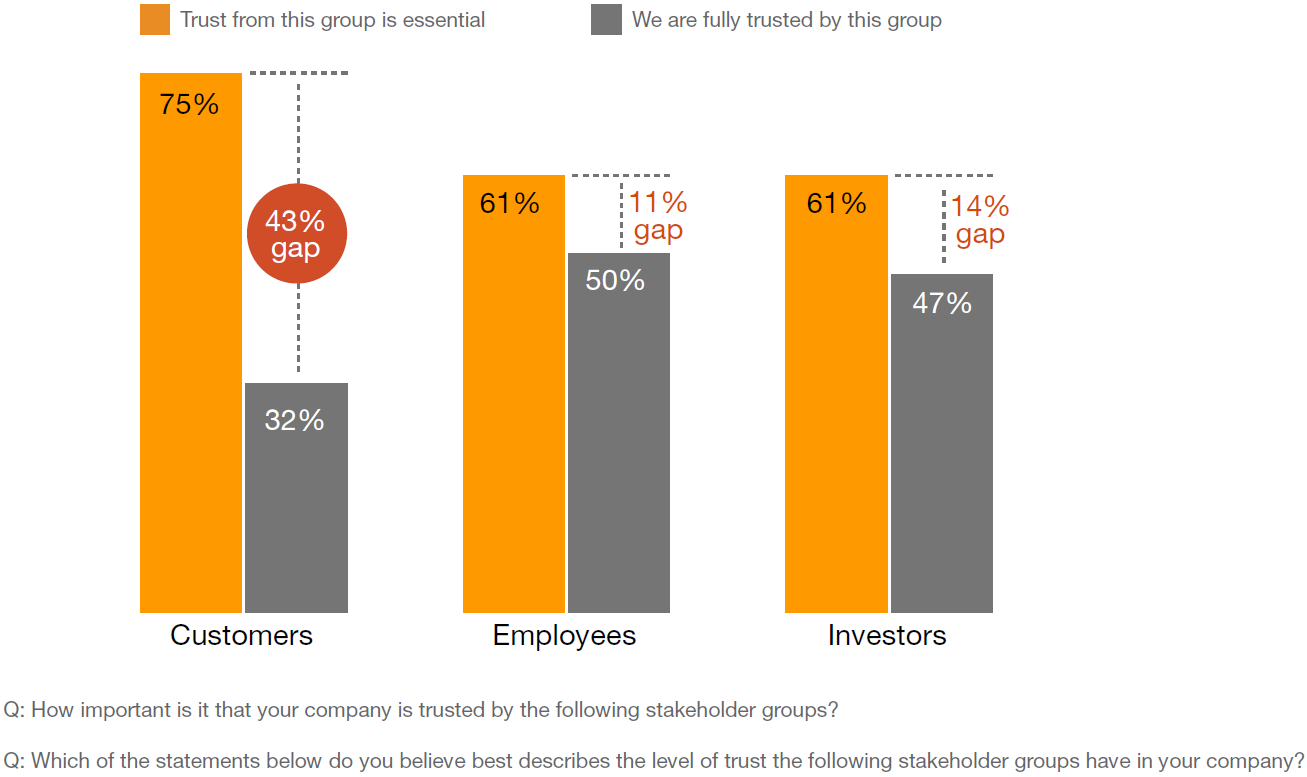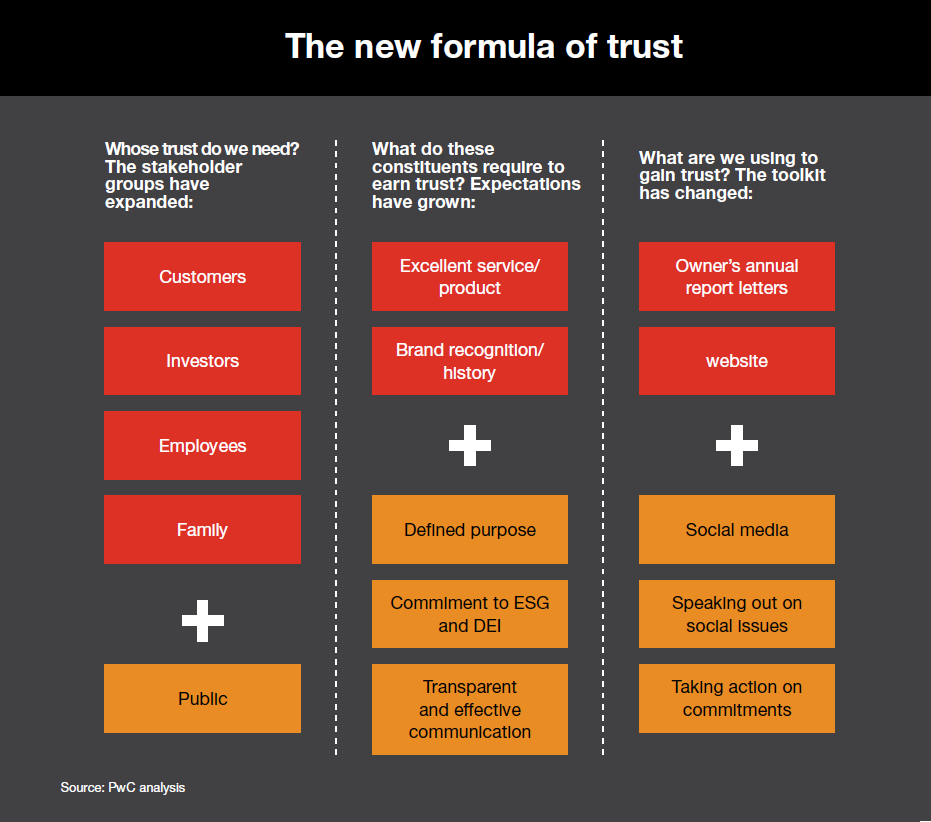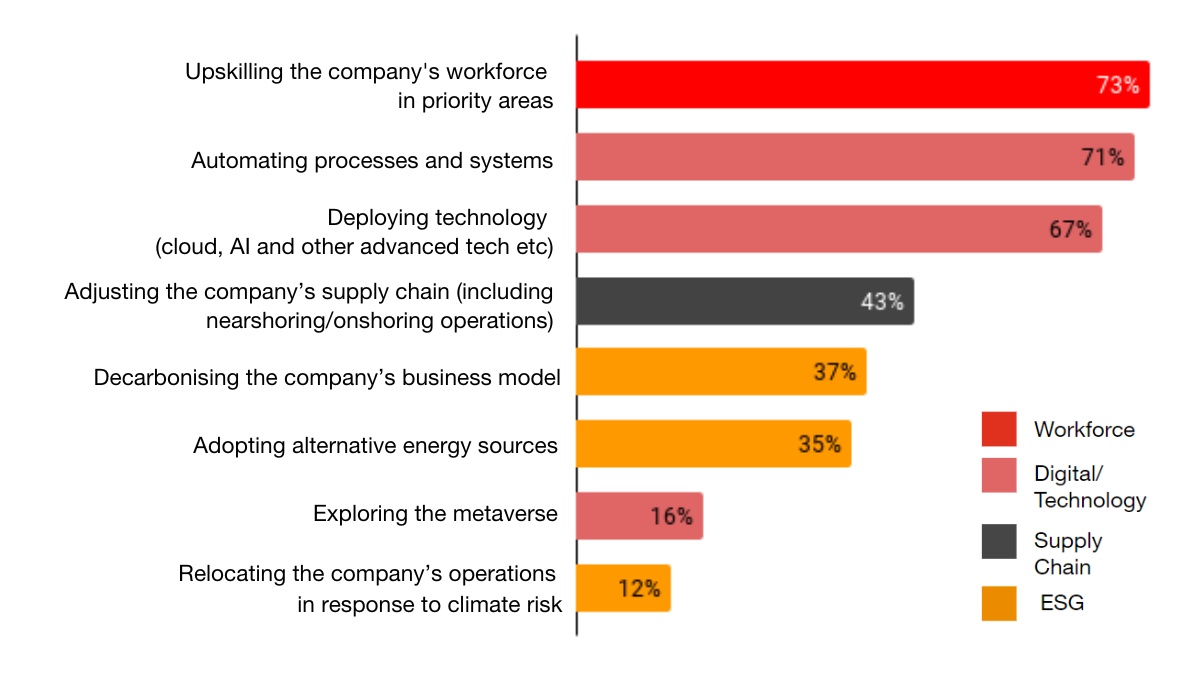PwC: Family businesses in Vietnam need to transform to build trust
 |
Vietnamese family businesses saw good growth in their business compared to the last survey in 2021, with 53 per cent seeing growth in sales and 36 per cent seeing double-digit growth. However, growth goals for the next two years are less ambitious, with only 14 per cent of Vietnamese family businesses seeing rapid growth in the next two years, less than half compared to our last survey (33 per cent).
The key priorities facing Vietnamese family businesses over the next two years are improving digital capabilities and rethinking the business – changing or adapting the business model (where the top priority is expanding into new markets).
In these uncertain times, family businesses need to focus on building trust with stakeholders to adapt and thrive. Their goal is to increase the visibility of their efforts and deliver consistent messages to key stakeholders.
Family businesses in Vietnam are facing a trust gap
PwC Vietnam’s survey reveals that family businesses in Vietnam, similar to their global and regional peers, are facing a trust gap. They prioritise trust from customers, employees and investors, but they believe that they are not yet fully trusted by these key stakeholders. There is a clear need to bridge the trust gap between family businesses and the key stakeholder groups.
 |
| The trust gap between family businesses and the key stakeholder groups |
The report highlights four key groups for family businesses in Viet Nam to build trust with to build long-term growth and success: customers, investors, employees and family members. Customers (75 per cent) followed by employees (61 per cent) and investors (61 per cent) are the most important stakeholders to family businesses to build trust. Meanwhile, trust from family members is currently considered significantly less important (28 per cent).
Customer trust is most essential for family businesses
Knowing the value of customer trust, family businesses have set customer satisfaction as the top business goal set in place (86 per cent). Although over 90 per cent of Vietnamese consumers are willing to pay higher prices for sustainable products, PwC survey shows that family businesses in Viet Nam have yet to place emphasis on environmental, social, and governance (ESG) issues and DEI matters.
When family businesses were asked to rank their top five priorities in the next two years, only 17 per cent of respondents chose to increase the organisation’s social responsibility; 6 per cent chose to improve performance on diversity and inclusion, no respondents chose to reduce the organisation’s carbon footprint.
Vietnamese family businesses have opportunities to obtain this ESG premium if putting focus and resources into ESG as well as showing customers their actions. However, only 34 per cent say they regularly communicate how well they perform against defined non-financial targets.
Nguyen Hoang Nam, partner and ESG lead, Assurance services, PwC Vietnam said, “Reporting non-financial targets relating to ESG can be complex. However, family businesses can start small by focusing on key ESG issues relevant to their industry and stakeholders. For example, they can share how companies protect data privacy, which consumers care deeply about; or how they carry out social responsibility activities or traditional forms of philanthropy, which 72 per cent of surveyed family businesses say they are currently doing.”
By being more transparent about their business practices and maintaining consistent quality in their products or services, family businesses can create a strong foundation of trust with their customers, which can lead to long-term business success.
Trust within the family business is being underrated
PwC survey found that about 40 per cent of respondents admitted to lower levels of trust between family members. In particular, trust is significantly lower between generations.
Nearly one-third feel it is essential to be trusted by family members, much lower than the global average at 63 per cent and APAC average at 54 per cent. This can explain why 64 per centof respondents in the PwC survey shared that family conflicts within the business occur, much higher than the global and APAC average of 30 per cent and 29 per cent respectively.
Achieving trust internally calls for generations to work closely together in establishing family governance structures and practices to professionalise the family business. PwC findings suggest two areas of focus, including clarifying roles and responsibilities and establishing shared values and goals.
Family businesses need to adopt new priorities to secure their legacy
To safeguard family legacy, family businesses need to expand their focus and get familiar with a new transformative approach to build trust.
 |
| The new formula of trust |
This means that family businesses will have to change policies and practices, revisit their priorities, and communicate those changes to every stakeholder group and across generations. There are three actions for family businesses to prioritise:
- Establish two-way communication with stakeholders: Family businesses have to model strong ideals in their relationships with internal and external stakeholders, starting with a fair internal system for reporting misbehaviour and a clear feedback mechanism for customers.
- Build trust through transparency: Family businesses need to conduct regular public reporting of the company’s ESG and DEI targets, and its performance against those. Transparency is essential to trust.
- Speak out on social issues: Be more vocal, visible and active. To build public trust, family businesses must show that they care about social matters, such as gender equality, LGBTQ+ diversity and inclusion on public forums or corporate statements.
Jonathan Ooi, partner, Entrepreneurial & Private Business Service leader, PwC Vietnam said, “The post-COVID world's optimism has been tested by geopolitical turmoil and its economic impact, leaving businesses navigating uncharted territory."
"Family businesses know that trust is a prized asset, serving as a cornerstone of their success and a key differentiator in today's competitive landscape. Family businesses not only need to make transformative changes to build trust, they have also got to make their efforts visible and communicate them clearly to their stakeholders,” Ooi added.
 | PwC report reflects CEO's latest sentiments PwC Vietnam has just released its 26th Annual Global CEO Survey on What matters to CEOs in Vietnam based on PwC’s 26th Annual Global CEO Survey – Asia-Pacific: Leading in the New Reality, which reveals striking data points that bring to life the challenges facing 1,634 CEOs in the region and their implications in Vietnam. |
 | Banking legacies and family ties shaping commercial banks in Vietnam Explore the intriguing dynamics of Vietnam's private banks, such as Techcombank, TPBank, LPBank, OCB, SHB, ACB, and SeABank, where family members of top executives wield significant influence and play key roles in shaping the institutions' operations and strategies. |
What the stars mean:
★ Poor ★ ★ Promising ★★★ Good ★★★★ Very good ★★★★★ Exceptional
 Tag:
Tag:
Related Contents
Latest News
More News
- From compliance to strategy: ESG criteria gaining ground (September 29, 2025 | 15:47)
- Vietnamese firms step up ESG game (September 23, 2025 | 15:26)
- Vietnam tax and legal changes set to shape foreign investment landscape (September 16, 2025 | 13:46)
- Vietnamese businesses navigate US tariffs (June 25, 2025 | 12:14)
- The impact of cloud, AI, and data on financial services (April 14, 2025 | 11:20)
- Vietnam 2025 M&A outlook: trends, deals, and opportunities (March 21, 2025 | 08:54)
- Vietnam's M&A landscape mirrors global trends (February 18, 2025 | 17:13)
- Asia-Pacific CEOs enter 2025 with optimism and caution (February 06, 2025 | 17:16)
- Proposed changes to interest deductibility rules may be welcomed by taxpayers (January 22, 2025 | 09:23)
- PwC Vietnam holds Hack A Day 2024 to nurture IT and cybersecurity talents (November 14, 2024 | 12:24)





















 Mobile Version
Mobile Version